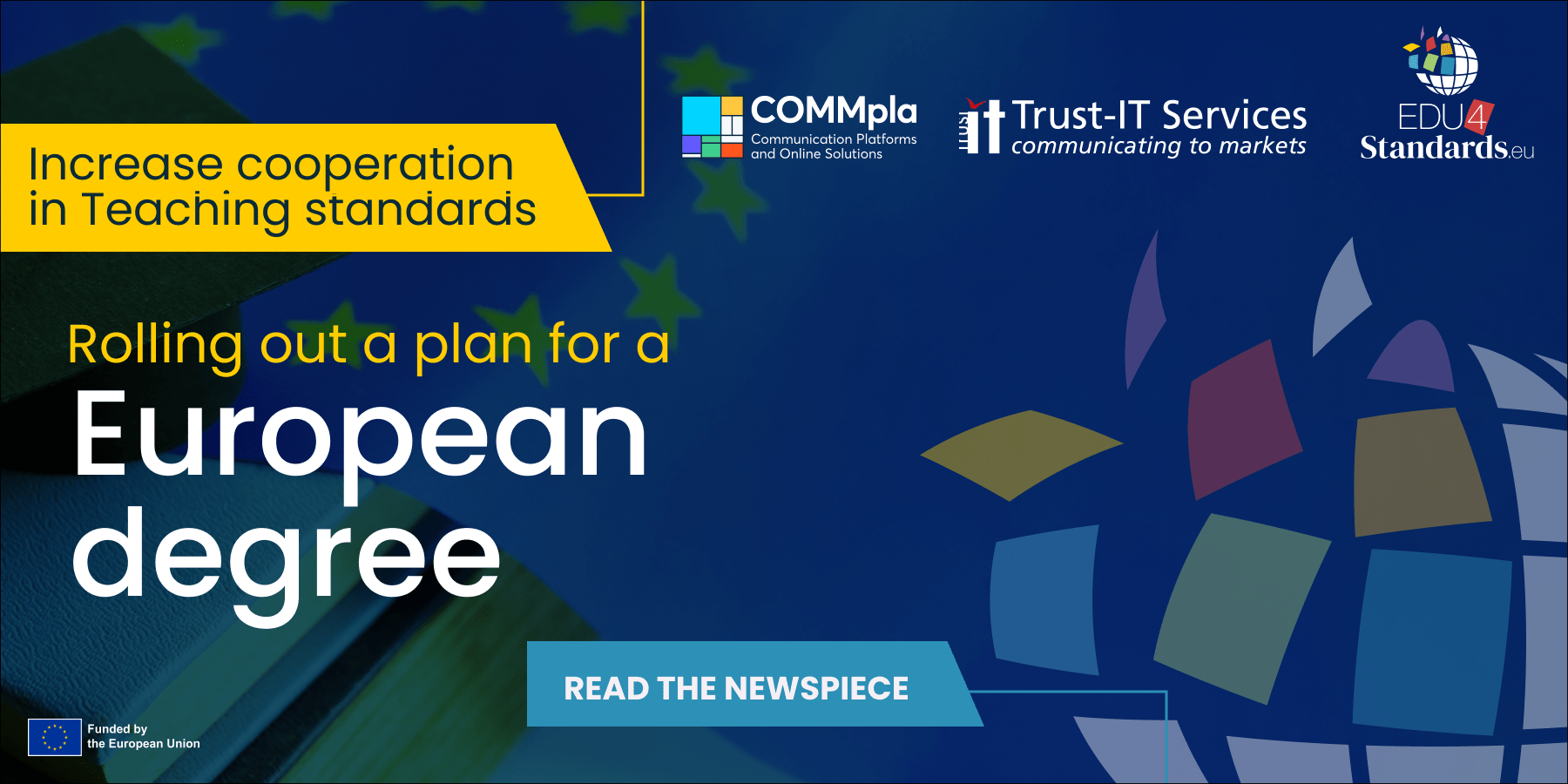Increase cooperation in teaching standards: a plan for a European degree

Understanding the discrepancies in the EU education system
Nowadays, European higher education systems and universities differ across countries: each one of them has its own rules, procedures and recognition of qualifications. These discrepancies have underlined the legal and administrative barriers that educational institutions have to face everyday for setting up competitive and joint degree programmes.
A plan for a European Degree
To tackle this issue, the European Commission is presenting a plan to advance transnational cooperation between higher education institutions and universities, with the aim of creating a European degree system.
The ultimate goal of this initiative is to create a new type of degree, automatically recognised everywhere in the EU and based on a common set of criteria agreed at the European level.
The European degree will be awarded jointly and on a voluntary basis by a group of Universities across Europe, after transnational Bachelor, Master, or Doctoral programmes delivered at national, regional, or institutional level.
Benefits for students and higher education institutions
Higher education systems will be supported in this pathway thanks to the implementation of a series of European degree design measures. The ultimate goal is to adapt higher institutions’ existing joint programmes or create new ones, leading to a European degree.
These measures will increase the competitiveness and attractiveness of EU universities and higher education institutions, with a truly European learning experience.
Establishing a European degree system will offer better opportunities for European students as well: they will have more opportunities to study across multiple universities in Europe, develop future-proof skills that Europe needs and apply to job opportunities across the EU with a common recognised degree.
Edu4Standards.eu efforts for connecting European education institutions, educators and learners in the field of standardisation
Establishing a European degree system would consequently increase transnational cooperation between higher education institutions: having this system implemented would be an important support for EDU4Standards.eu.
EDU4Standards.eu addresses the underutilisation of standardisation in education and research, with a comprehensive approach which also includes cooperation activities, such as building a European community of standardisation teachers and learners and establishing an EU Student Standardisation Association.
For reaching this goal, EDU4Standards.eu will implement a series of 5 pilot programmes designed to integrate and refine the teaching of standardisation in various educational and professional settings across Europe - with the ultimate aim of increasing awareness and understanding of standardisation, and fostering a community of educators, learners, and professionals dedicated to this field.
An improved cooperation between European educational institutions would facilitate the work that EDU4Standards.eu is planning to undertake in schools, higher education institutes and universities - providing a concrete innovation on how standardisation is taught in European Higher Education.
Teaching standardisation in European educational institutions that concretely cooperate with each other and are regulated by common European measures would consequently consolidate a community of standards’ educators and students for the future - hence contributing to empowering standardisation through education in Europe.
Our role
In EDU4Standards.eu, Trust-IT leads the communications, dissemination and engagement strategy. These activities comprehend the development of a sustainability strategy of project results, the implementation of international cooperation in all the activities of the project and the organisation of targeted physical and online workshops, webinars and events to showcase the results and deliver final policy recommendations.
Stay tuned for updates and join the conversation!

